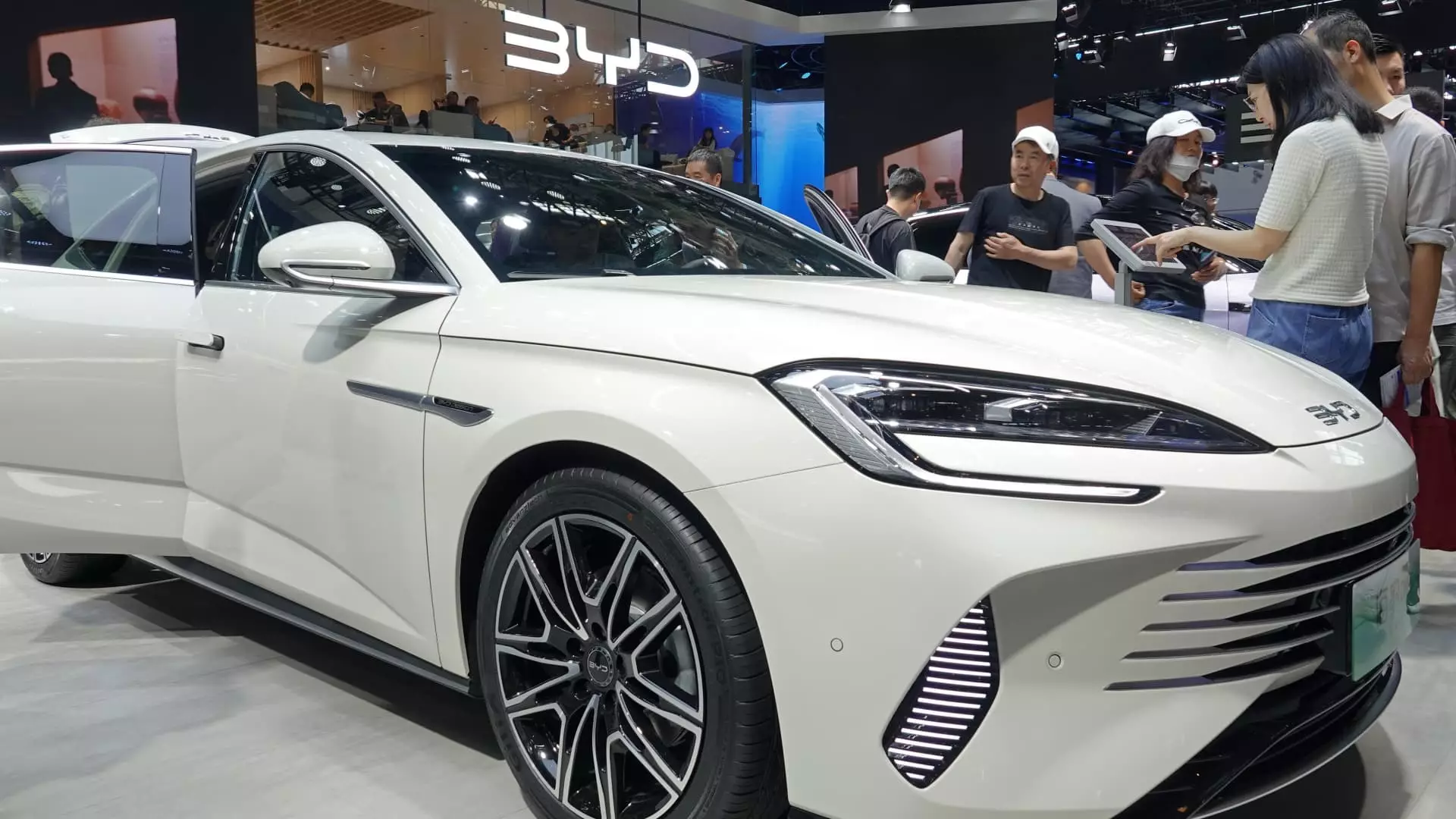The recent announcement by the European Union to impose higher tariffs of up to 38% on Chinese electric vehicles (EVs) has created a ripple effect in the market. Following this news, shares of Chinese EV makers experienced a surge in value, with Hong Kong’s Hang Seng index seeing a notable increase of 1.23% at the opening bell. Companies like BYD, Geely, Nio, and Li Auto all witnessed gains in their stock prices, reflecting the positive response from investors.
Among the Chinese EV makers, BYD emerged as the top gainer on the Hang Seng index, with its stock jumping 8% during morning trade. Geely also experienced a significant increase of about 4%, while Nio and Li Auto saw their shares climb by 1.75% and 2.67% respectively. However, state-backed SAIC was an outlier in this trend, as it faced a decline of more than 2% in its stock value.
The EU’s decision to impose additional tariffs on Chinese EV players with a notable presence in Europe has raised concerns within the industry. BYD, Geely, and SAIC are set to face extra duties ranging from 17.4% to 38.1%, on top of the standard 10% duty imposed on imported EVs. While these punitive tariffs could have a significant impact on the sector, experts believe that it will not derail China’s ongoing recovery.
In response to the provisional duties imposed by the EU, China expressed its discontent with the move, labeling it as “blatant protectionism” that could lead to further trade frictions. The Ministry of Commerce in Beijing stated that the decision disrupts and distorts the global EV industry, showing deep concern and strong dissatisfaction with the development.
The EU’s decision to levy extra tariffs on Chinese EV makers is seen as a strategic move to address what it considers as unfair subsidization benefiting these companies. The ongoing investigation highlights the competitive landscape in the EV sector, with implications for companies that have cooperated or not cooperated with the probe. The introduction of provisional duties indicates a potential shift in the dynamics of the global EV market, with China and the EU at the center of this trade dispute.
Looking ahead, Chinese EV manufacturers will need to navigate these challenges posed by the EU tariffs while also capitalizing on the opportunities in the market. Building production facilities in Europe could be a strategic move for companies like SAIC to avoid higher tariffs and strengthen their presence in the region. By investing in local manufacturing and addressing concerns raised by the EU, Chinese EV makers can continue to thrive in the competitive global market.
The impact of EU tariffs on Chinese EV makers underscores the complex dynamics of the global automotive industry. While the punitive tariffs may pose challenges for companies in the short term, they also present opportunities for strategic growth and expansion. By adapting to the changing regulatory landscape and focusing on sustainable practices, Chinese EV manufacturers can navigate through this period of uncertainty and emerge stronger in the long run.

